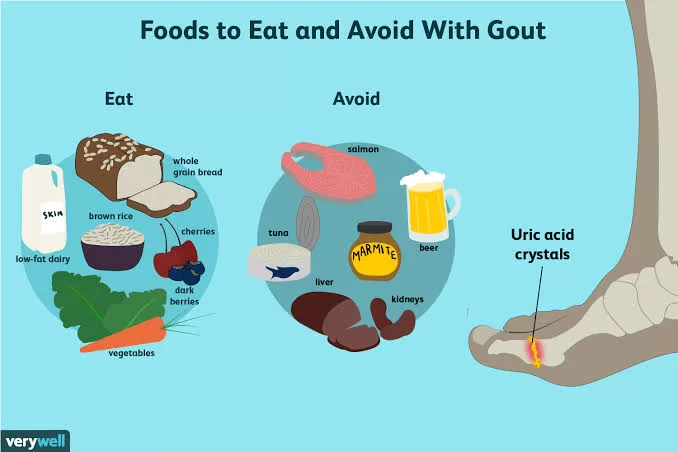5 foods that can help to reduce uric acid:
- Cherries. Cherries are a good source of anthocyanins, which are antioxidants that have been shown to reduce uric acid levels. A study published in the journal Arthritis & Rheumatology found that people who ate 2 cups of tart cherries for 2 weeks had significantly lower uric acid levels than those who did not eat cherries.

- Water. Staying hydrated is important for overall health, and it can also help to reduce uric acid levels. When you drink plenty of water, it helps to flush out uric acid from your body. Aim to drink 8 glasses of water per day.

- Coffee. Coffee is another beverage that has been shown to help reduce uric acid levels. A study published in the journal Rheumatology found that people who drank 3 or more cups of coffee per day had a 40% lower risk of developing gout than those who did not drink coffee.

- Citrus fruits. Citrus fruits, such as oranges, lemons, and grapefruits, are a good source of vitamin C, which has been shown to help reduce uric acid levels. A study published in the journal Arthritis & Rheumatology found that people who took a vitamin C supplement for 6 weeks had significantly lower uric acid levels than those who did not take a supplement.

- Whole grains. Whole grains, such as brown rice, quinoa, and oats, are a good source of fiber, which can help to lower uric acid levels. A study published in the journal Nutrition & Metabolism found that people who ate a diet high in fiber had lower uric acid levels than those who ate a low-fiber diet.

In addition to eating these foods, it is also important to avoid foods that are high in purines. Purines are substances that are broken down into uric acid in the body. Foods that are high in purines include red meat, poultry, seafood, organ meats, and beer. If you have high uric acid, it is best to limit your intake of these foods.
It is also important to note that there is no one-size-fits-all treatment for high uric acid. What works for one person may not work for another. If you are concerned about your uric acid levels, it is best to talk to your doctor. They can help you develop a treatment plan that is right for you.

